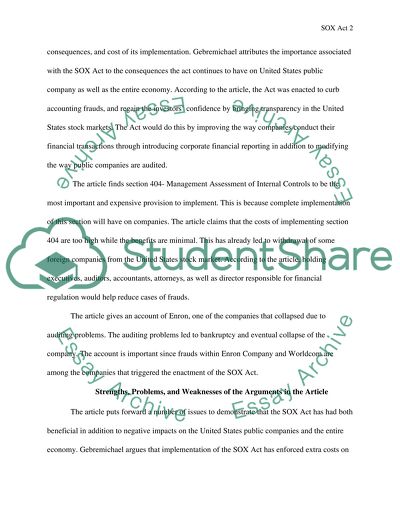Cite this document
(“The Costs, Benefits and Unintended Consequences of the Sarbanes-Oxley Essay”, n.d.)
The Costs, Benefits and Unintended Consequences of the Sarbanes-Oxley Essay. Retrieved from https://studentshare.org/finance-accounting/1456394-the-costs-benefits-and-unintended-consequences-of
The Costs, Benefits and Unintended Consequences of the Sarbanes-Oxley Essay. Retrieved from https://studentshare.org/finance-accounting/1456394-the-costs-benefits-and-unintended-consequences-of
(The Costs, Benefits and Unintended Consequences of the Sarbanes-Oxley Essay)
The Costs, Benefits and Unintended Consequences of the Sarbanes-Oxley Essay. https://studentshare.org/finance-accounting/1456394-the-costs-benefits-and-unintended-consequences-of.
The Costs, Benefits and Unintended Consequences of the Sarbanes-Oxley Essay. https://studentshare.org/finance-accounting/1456394-the-costs-benefits-and-unintended-consequences-of.
“The Costs, Benefits and Unintended Consequences of the Sarbanes-Oxley Essay”, n.d. https://studentshare.org/finance-accounting/1456394-the-costs-benefits-and-unintended-consequences-of.


